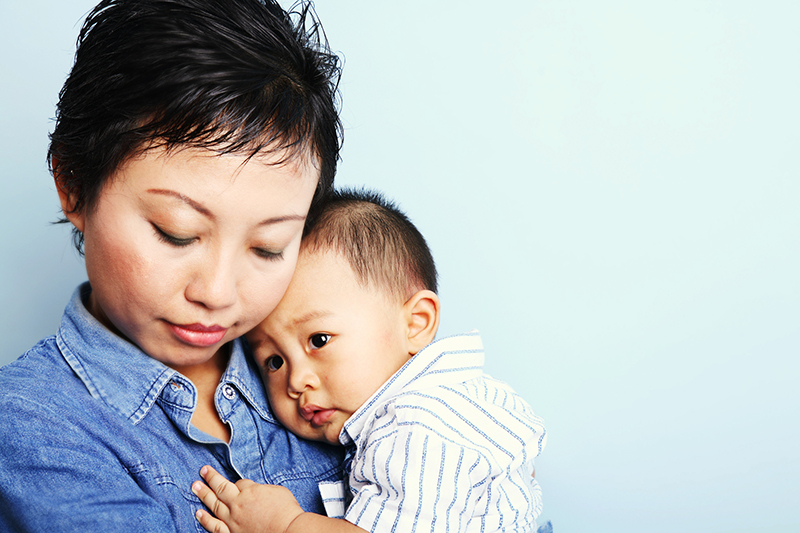Families For Life | Understanding Postnatal Depression

Many women don't realise they have postnatal depression because it can develop gradually. However, it's quite common as it affects one in 10 women who have recently given birth. Learn how to recognise its symptoms before it becomes a more serious problem.
Postnatal depression (PND), sometimes referred to as post-partum depression, is sometimes confused with baby blues. Unlike baby blues, PND is an illness that's unlikely to get better as quickly as baby blues, and without help. Women suffering from PND often think of themselves as weak or abnormal, but the truth is, it's common, affecting one in 10 women who have recently delivered.
Who's at risk?
Those at risk include:
- women with past psychiatric illness, especially major depression
- women who were depressed in pregnancy are most likely to be depressed after delivery
- women who have little support, money worries and marital/relationship dissatisfaction.
When does PND usually happen?
PND often develops within the first few months after giving birth, particularly in the first five weeks. However, it can start at any time during the first year. Depression can suddenly creep up or it could even have been with you during pregnancy and did not lift after the birth of your baby.
What causes PND?
It's more likely to be for a few reasons rather than just one. You could be vulnerable to PND with your second baby even if you were fine with your first and vice versa. Certain circumstances may make you more vulnerable to PND including:
- being depressed before, having previous problems with mental health or depression
- an unsupportive partner and/or no support system (family or friends)
- money, work or relationship problems
- a difficult pregnancy and labour with resulting health problems
- a premature baby that requires a lot of attention or an unwell baby
- difficulty in breastfeeding.
PND symptoms
The signs and symptoms of PND are different for every mum. In fact, your family or friends may spot the signs before you do. The common symptoms include:
- Low/sad mood
- Irritability
- Extreme tiredness with no energy
- A loss of interest in activities
- Poor sleep
- A sense of hopelessness
- A sense of guilt
- Lack of appetite
- Tearfulness
- Anxiety
- Physical symptoms such as body aches
- Negative feelings towards your baby
It's important to note that many mums have at least one of these feelings at some time. It's normal to have good and bad days. However, if you're feeling many of these symptoms on most days and they don't get better, you could have PND.
How is PND treated?
With help, you'll get better. You may be prescribed psychological treatment or "talk therapy" — this is especially useful for patients who are reluctant to use medications or who have milder forms of depression. Your doctor may refer you to a support group, counsellor or psychotherapist.If the depression is more severe, medication will be required along with psychological therapy. Possible side effects as well as an individual's response or particular needs will be considered.
How to help yourself overcome PND
- Get lots of rest and sleep — nap whenever your baby is sleeping and get help from your husband or immediate family during the night so that you get sufficient sleep.
- Eat a healthy, well-balanced diet — try not to go without food for too long so that you don't suffer from dips in energy and feel tired or run down.
- Exercise — it helps both mind and body.
- Meet other mums — this will help you feel less isolated.
Explore more
By Associate Professor TAN Thiam Chye Head & Senior Consultant, Dr Janice TUNG Senior O&G Resident,
Department of Obstetrics and Gynaecology, KK Women's and Children's Hospital
Copyright © 2016 HealthHub.sg. All rights reserved.